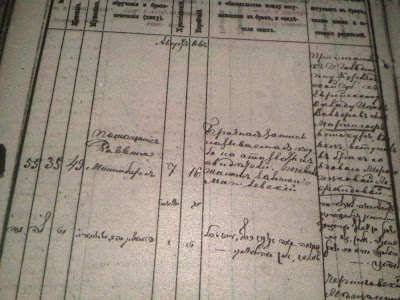This is the first in a series that summarize an interview of my grandmother, Sonia Bajcz/Beitch Diamond (then Sara Bajcz), from about 20 years ago. This talks about her growing up in Horochov, Volhynia, Ukraine (then Horochow, Wolyn, Poland), what the city was like, and her schooling.
I was born in the city Horochow (in Polish) or Gorochov (in Russian) in West Ukraine; in Yiddish it was Horochov. Wolyn was the name of the state (Lara's note: it is now in Volhynia Oblast). I lived on Pilsutski Street, I think number 120. We led a normal life. We lived between different nationalities-Ukrainian, German, Czechoslovakian. In the street we spoke Polish; in the house we spoke Yiddish between ourselves. I also learned to speak a bit of German and Czechoslovakian from friends in my class. The city was not a big city like Warsaw or Krakow. But we had a mayor and a governor, doctors, a hospital, some banks. The city was very nice with wide paved streets and a variety of stores--food clothing, fabrics, pharmacies. The gentiles would mostly live outside the city. Near the park were
mansions for the high officials (mayor and governor) so they would not
live with the Jewish people.







































